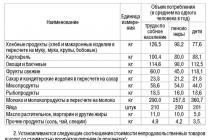For the first time about the need for Russia to switch to the adopted in international practice accounting and statistics system in accordance with development requirements market economy was indicated in the Decree of the Supreme Council of the Russian Federation of October 23, 1992 No. 3708-1. The said Decree approved the relevant Government program.
However modern stage convergence with IFRS goes back to the Reform Program accounting in accordance with international standards financial reporting, which, pursuant to Decree of the President of the Russian Federation of 03.04.1997 No. 278, was approved on 06.03.1998 by Decree of the Government of the Russian Federation No. 283.
In accordance with the said Government Decree, the Plan for the Implementation of Accounting Provisions (Standards) into Practice (Government Decree No. 587-r dated May 22, 1998) was approved.
Accordingly, the Chart of Accounts (Order of the Ministry of Finance dated October 31, 2000 No. 94n), Regulation on accounting and financial statements(Order of the Ministry of Finance dated 29.07.1998 No. 34n), Accounting Regulations (PBU) were adopted mainly taking into account the Reform Program and the Standards Implementation Plan. However, the practice of applying IFRS in its pure form was not formed, since IFRS were not recognized in the territory of the Russian Federation.
Recall that the recognition of documents of international standards is understood as the process of making a decision on the introduction of each document of international standards into force on the territory of the Russian Federation (clause 3 of the Regulation, approved by Government Decree No. 107 of February 25, 2011).
Recognition of IFRS in the Russian Federation
From February 19, 2016 to the present, IFRS and explanations approved by Order of the Ministry of Finance dated December 28, 2015 No. 217n are applied in the Russian Federation.
Other IFRS acts were also introduced on the territory of the Russian Federation by Orders of the Ministry of Finance dated June 27, 2016 No. 98n, dated July 11, 2016 No. 111n.
Who applies IFRS in Russia?
Currently, entities that prepare consolidated financial statements are required to apply IFRS. After all, such reporting is compiled exclusively in accordance with international standards (part 1 of article 3 of the Federal Law of July 27, 2010 No. 208-FZ). But reporting according to IFRS does not exempt from keeping records according to Russian rules (part 2 of article 3 of the Federal Law of July 27, 2010 No. 208-FZ).
Other organizations that are not required to prepare consolidated financial statements may, if they wish, in addition to the mandatory Russian accounting keep accounting in accordance with IFRS.
Back in 1998 the government Russian Federation made a decision to change the accounting system. The reasons for the reform of Russian accounting were numerous complaints foreign investors on difficulties in drawing up business plans and calculating the effectiveness of invested funds. A program to reorganize Russian accounting in accordance with international financial reporting standards has come into force. What difficulties did domestic companies face, why is the transition to IFRS mandatory and who will have to apply them in 2018? This and much more will be discussed in this article.
10 years have passed - what is the result?
Today, Russian accounting can boast of its provisions, which are 80% compiled in accordance with the requirements of IFRS. The remaining 20% were planned to be transferred to international standards by 2018.
Note that only since 2010, the process of reforming the accounting of the Russian Federation in accordance with International Financial Reporting Standards has intensified. What preceded this? A number of adopted regulations, including:
Since 2012, IFRS have been mandatory for all socially significant companies in Russia. And in 2013, Andrey Belousov, Assistant to the President of the Russian Federation, who previously held the position of Minister economic development Russia, at a conference in Berlin spoke about the transition to international standards as follows:
“We have adopted a strict program of transition to IFRS in the government. Since 2012 international standards financial accounting are obligatory for all socially significant companies... And since 2018, we plan that all Russian business will switch to the new standards completely.”
Top management is confident that such a move will bring considerable benefits to the country's economy. foreign investment which in turn will raise the standard of living of the Russian people.

Reasons for a long transition to IFRS and how to eliminate them
The main stopper of the full and widespread introduction of the Anglo-Saxon financial reporting model is the frequent contradiction of the requirements for the preparation of reporting documentation. Thus, according to international standards, reporting must meet the needs of owners, while national financial reporting standards establish legal requirements. Radicals among the CFOs large companies Russia is offered the complete abolition of RAS. Such a solution, in their opinion, eliminates the problem of inconsistency between the goals of accounting and reporting. How Russian enterprises keep records in accordance with IFRS and at the same time not violate government regulations? According to experts, it is necessary to modernize tax accounting. After that, Russian companies will be able to draw up two reports: according to IFRS and for tax.
Who must apply IFRS from 2018?
All organizations that provide consolidated financial statements for the year are required to apply International Financial Reporting Standards. These companies include:
- banks;
- Insurance companies;
- non-state pension funds.

Transition to IFRS in Russia 2018: challenges and future prospects
Since International Financial Reporting Standards are much more complicated than RAS, accountants and financial professionals need to pass IFRS training and acquire new knowledge and skills in applying international standards.
Many companies are already using external IFRS consultants, but they will quickly realize that the services of professionals are quite expensive. In this case, it is much more profitable to train your specialists within the organization.
In addition, accountants and would-be IFRS practitioners must be proficient in financial English to avoid official translations of international standards and amendments to them by third parties.
The main advantages of the transition to IFRS include the following:
- an increase in the number of potential foreign investors, which in turn will lead to an improvement in the state of the country's economy as a whole;
- increasing the company's competitiveness by providing external users reliable information;
- decrease interest rate when attracting additional funding;
- improving the quality of management management accounting by the owners of the company, a more accurate estimate financial condition affairs.
The transition of all Russian business to IFRS in 2018 is inevitable, as it is backed up by law.
IFRS is an accounting system that is used in over 100 countries. In the article we will tell you what these standards are, why they are needed and what regulations you will need.
What is IFRS
IFRS is International Standards financial reporting. In English, they are called IFRS - International Financial Reporting Standards.
Reporting standards are clear, logical and built on simple basic principles accounting system. Its purpose is to provide truthful information about the activities of the enterprise in the financial statements.
In there . Based on the results of training, a state diploma is issued. You can view the training program and sign up.
History of creation
In 1973 accounting and audit organizations from different states decided to unify the principles of reporting. To do this, they organized a non-governmental organization - the Committee on International Financial Reporting Standards (IASB). In 2001, it was replaced by the International Accounting Standards Board (IASB).
Since 2005, all companies whose shares are traded on European stock exchanges issue consolidated financial statements according to IFRS.
IFRS principles
The key principle of IFRS is the so-called balance sheet approach. Its essence is that the most important report is . It is subjected to the most stringent test for compliance with the conditions for recognition as an asset or liability.
Anything that does not meet the conditions for recognition cannot be accounted for as an asset or liability in the income statement. financial position and is therefore written off to profit or loss or to other comprehensive income. Formally, the balance approach is enshrined in the Conceptual Framework through:
- definition of assets and liabilities;
- the conditions for their recognition in the statement of financial position;
- the concept of capital maintenance, according to which profit is considered received only if exceed its net assets at the beginning of the reporting period.
Objectives of IFRS reporting
common goal consists in presenting financial information about the enterprise, which will be useful to existing and potential investors, lenders and other creditors in making decisions on the provision of resources to this enterprise.
Read more in the article of the magazine "Financial Director".
Qualitative characteristics of useful financial information
The IASB has divided the qualitative characteristics of useful financial information into two groups:
- fundamental qualitative characteristics, that is, those characteristics that the information presented in the reporting must necessarily satisfy;
- characteristics that improve the usefulness of information. Their application is important, but should not conflict with fundamental characteristics.
Table. Characteristics of useful financial information
Consider the main qualitative characteristics.
Read Ernst & Young's decision in CFO magazine.
Relevance. Information is relevant if, on its basis, the user can make decisions and make estimates (or change previously made estimates) about the events presented in the reporting (including forecast estimates).
Materiality. Information is material if its omission or misstatement could influence a user's decision regarding the reporting entity.
It is up to the reporter to determine whether the information is material to the user, based either on the nature of the event or its magnitude, in an unbiased manner. Events that are quite insignificant in terms of scale can nevertheless be significant. Suppose the refusal to pay dividends for reporting period is, of course, significant for the investor, although it has zero impact on the reporting of the enterprise.
True presentation. Information is true if it correctly reflects the economic substance of the transactions presented in the financial statements, and at the same time:
- complete (contains all the necessary information to understand economic essence operations);
- neutral (that is, presented without the intention of influencing economic decisions users);
- contains no errors.
Elements of financial statements and conditions for their recognition
Conceptual foundations distinguish five elements of IFRS financial statements: capital, assets, liabilities, income, expenses (Fig. 2).
Figure 2. Elements of financial reporting
Capital- this is the residual amount after deducting all the liabilities of the enterprise from all its assets. That is, the capital is equal to the sum net assets enterprises.
Commitment is a present obligation of the entity arising from past events that is expected to result in an outflow from the entity of resources embodying economic benefits. It is important to understand here that the obligation of the enterprise must already exist at the reporting date. So, for example, the cost of future equipment repairs is not a liability, since the company has no obligation to carry it out. The company may decide not to carry out repairs at all or to sell the equipment.
The criteria for recognizing a liability in the financial statements are similar to the criteria for recognizing an asset (taking into account, of course, the disposal of economic benefits).
Income is an increase in economic benefits during the reporting period in the form of an inflow (increase) of assets or a decrease in liabilities, resulting in increase in own capital not related to the contributions of the owners.
Expenses is a decrease in economic benefits during the reporting period, occurring in the form of an outflow (depletion) of assets or an increase in liabilities, leading to a decrease in equity not related to its distribution among the owners.
Let's summarize. The Conceptual Framework that we've looked at is really the foundational document in IFRS. It is through the prism of the balance sheet approach laid down in the Conceptual Framework that we will further consider any IFRS standard. Almost all standards (with rare exceptions) are based on the Conceptual Framework and reflect the ideas and principles embedded in them.
List of IFRS standards with explanations
Full list IFRS standards in force in the Russian Federation.
Why IFRS standards are needed and who applies them, what standards are in force in 2019 and where to get their list - these questions arise for many who are just switching to IFRS. Look for answers in the article.
The abbreviation IFRS (IAS) stands for International Financial Reporting Standards. It is a set of principles and rules for reflecting various business transactions in the financial statements. IFRS is issued by a non-profit international organization– The IFRS Foundation (includes the Board and the IFRS Interpretations Committee), which is based in London. The main purpose of creating such standards is to provide a basis for the preparation and disclosure of financial statements by public companies. At the same time, IFRS contains only general guidance for the preparation of financial statements, but does not establish specific rules for its preparation. This is what makes it possible for companies around the world to apply the standards.
Download additional materials for the article:
As conceived by the developers, IFRS standards should become general principles preparation of financial statements for the whole world. Applying them on a global scale will allow investors and business owners to save money on comparing company statements prepared on the basis of various accounting standards, and will also allow more free dissemination of information. In addition, thanks to the introduction of IFRS, companies will be able to enter global capital markets and reduce the cost of capital. .
IFRS for beginners
We have put together all the materials created specifically for beginners, those who are just getting acquainted with international standards. These are articles about the main standards, a selection of "IFRS in the schemes", as well as mini-cases to test the acquired knowledge.
What IFRS 2019 consists of
IFRS documents include:
- International Financial Reporting Standards (IFRS). They are published by the IASB.
- International Financial Reporting Standards (IAS). They were issued by the IASB, the predecessor of the IASB.
Note!
The names of the first standards began with "IAS", for example IAS 1 "Presentation of Financial Statements". Since 2001, the names of new standards begin with "IFRS".
- Interpretations to IFRS prepared by the Interpretations Committee (IFRS);
- Interpretations to IFRSs issued by the Standing Committee on Interpretations (SIC), the predecessor of the IFRS.
IFRS in the usual sense are intended for use by commercial enterprises. For public sector entities, the International Accounting Standards Board for public sector developed its own international standards.
In 2009, the IASB issued the IFRS for Small and Medium sized Entities for non-public companies. This is a simplified version of IFRS, designed to facilitate the reporting process for small firms.
There is one more important document, which, however, is not part of the IFRS documents. This is the Conceptual Framework for Financial Reporting. The Conceptual Framework addresses the following questions:
- Purpose of preparing financial statements.
- Qualitative characteristics of useful financial information.
- Definition of elements of financial statements, principles of their recognition and evaluation.
- The concept of capital and maintaining the value of capital.
Since the Conceptual Framework is not an IFRS document, its provisions do not take precedence over specific IFRSs. Even if IFRS 16 is contrary to the Conceptual Framework.
However, the IASB is guided by the Conceptual Framework when developing new standards and revising existing ones. In addition, companies may use the Conceptual Framework to determine accounting methods if none of the current standards provides specific guidance.
Which countries apply IFRS standards in 2019
It is now safe to say that IFRS have become the global language of financial reporting. They are widely used in both developed and developing countries.
According to the IFRS Foundation, 144 of the 166 countries featured in the study currently require the application of IFRS standards for all or most listed companies (Table 1). And another 12 countries allow their use.
The iasplus.com portal provides the following statistics regarding the use of IFRS (the study covers 175 countries). For listed companies, IFRS standards are mandatory in 98 countries, in 9 countries they are required for some companies, in 25 countries they are allowed to be used, in 22 countries they are not allowed, in 21 countries there are no stock exchanges.
Table 1. Use of IFRS in the world
|
Region |
Number of countries in the region |
Countries that require the application of IFRS for all or most public companies |
Countries that require the application of IFRS, % |
Countries that allow or require the application of IFRS for some (but not all or most) public companies |
Countries that do not require or allow the application of IFRS for public companies |
|
Europe |
|||||
|
Africa |
|||||
|
Near East |
|||||
|
Asia and Oceania |
|||||
|
America |
|||||
|
Total |
|||||
|
In % of total |
Note that IFRS has never been adopted by the US, which uses US GAAP. Despite efforts since 2002 by the IASB and the US Financial Accounting Standards Board, the differences between accounting systems have not been completely eliminated. This discussion continues today.
However, it was possible to minimize differences in accounting for business combinations, consolidated financial statements, valuation fair value, share-based payments, segment reporting.
IFRS in Russia
For many Russian companies IFRS are mandatory. In Russia, IFRS was recognized in 2012. Then the texts of the standards were first officially published in the journal "Accounting" and posted on the official website of the Ministry of Finance of the Russian Federation.
Currently, reporting under IFRS is required (Article 8 federal law dated July 27, 2010 No. 208-FZ "On Consolidated Financial Statements"):
1) credit organizations;
2) insurance companies;
3) non-state pension funds;
4) management companies investment funds, mutual investment funds and non-state pension funds;
5) clearing organizations;
6) federal state unitary enterprises(according to the list approved by the Government of the Russian Federation);
7) joint-stock companies whose shares are in federal ownership and the list of which is approved by the Government of the Russian Federation;
8) other companies, securities which are admitted to organized trading by including them in the quotation list.
note!
Starting with the reporting for the first half of 2019, these companies are also required to prepare interim reporting according to IFRS. The term for its preparation is no later than 60 days after the end of the reporting period for which these reports were prepared.














